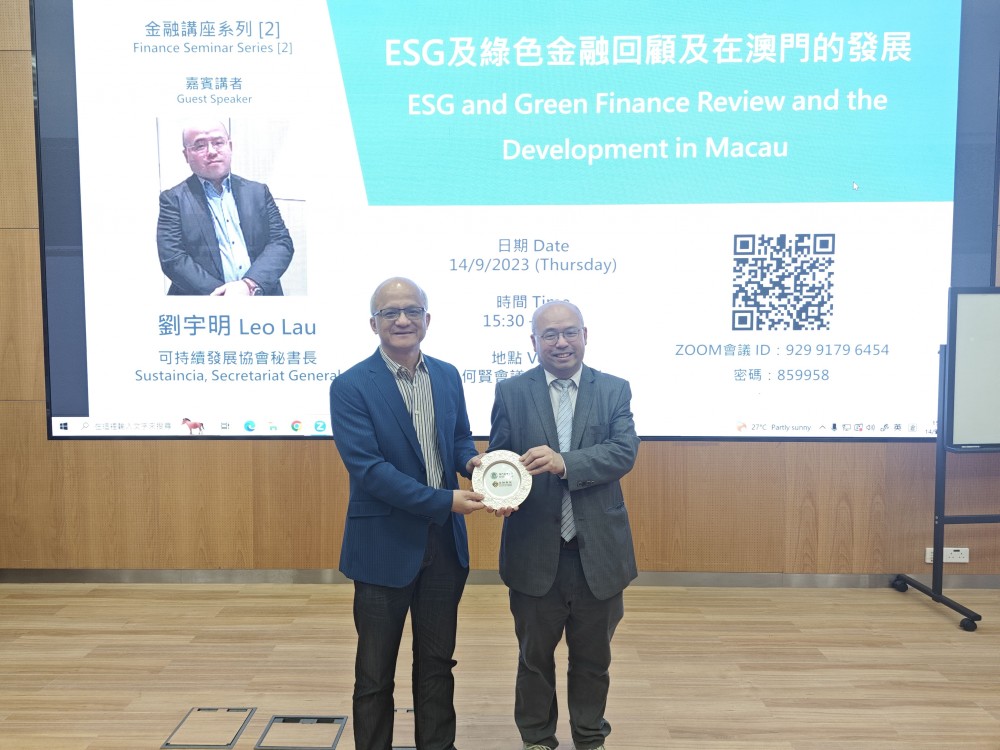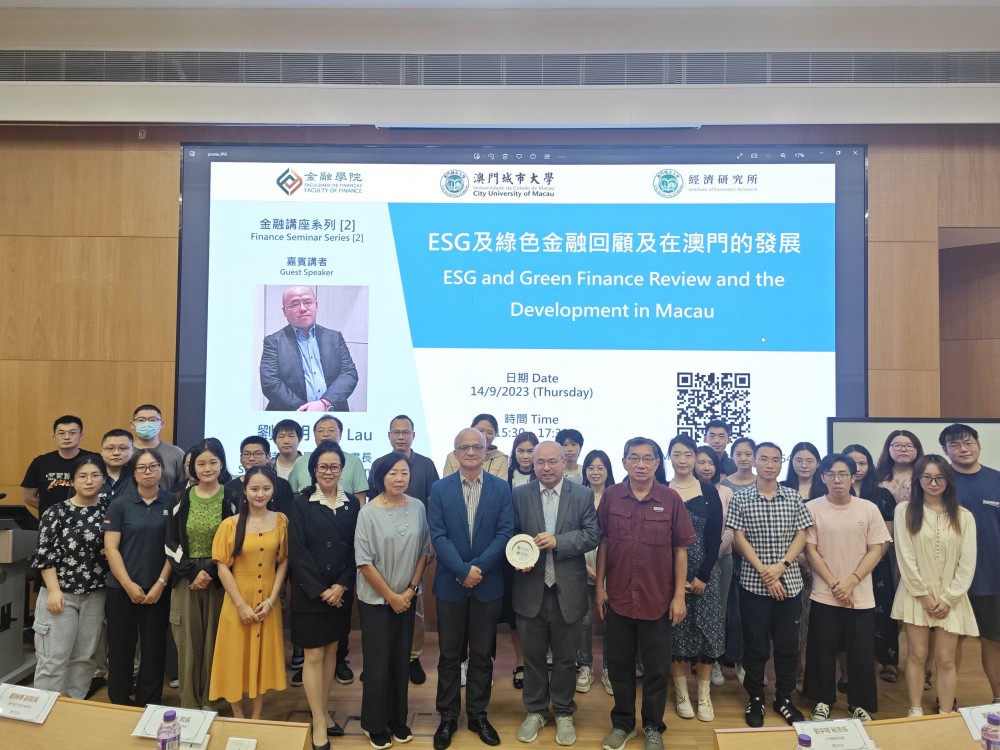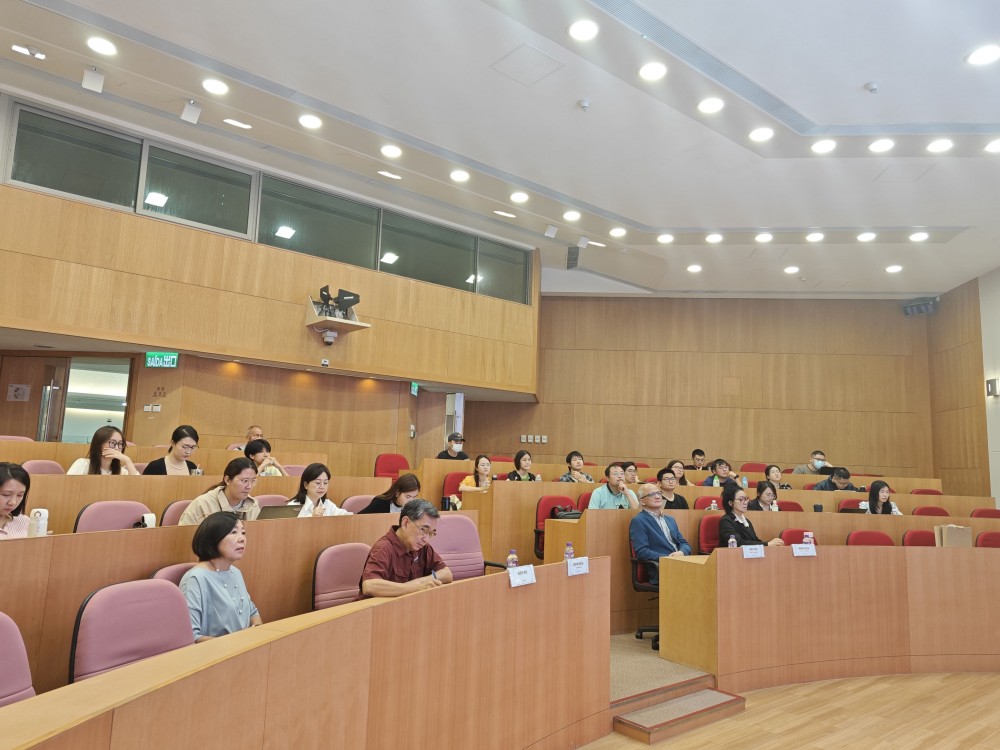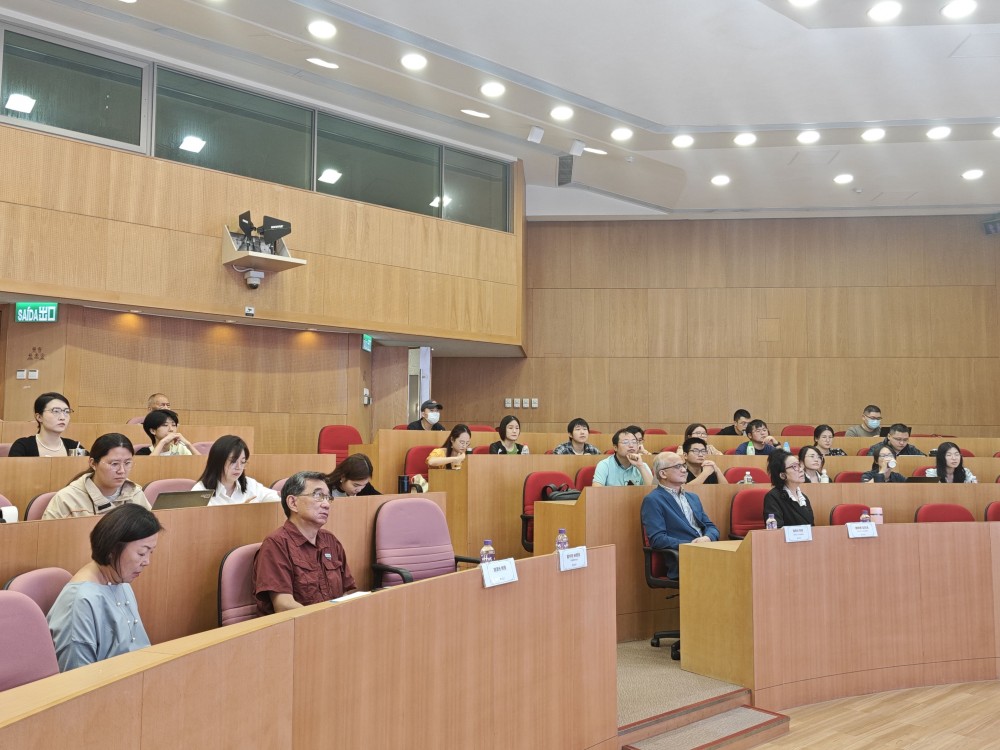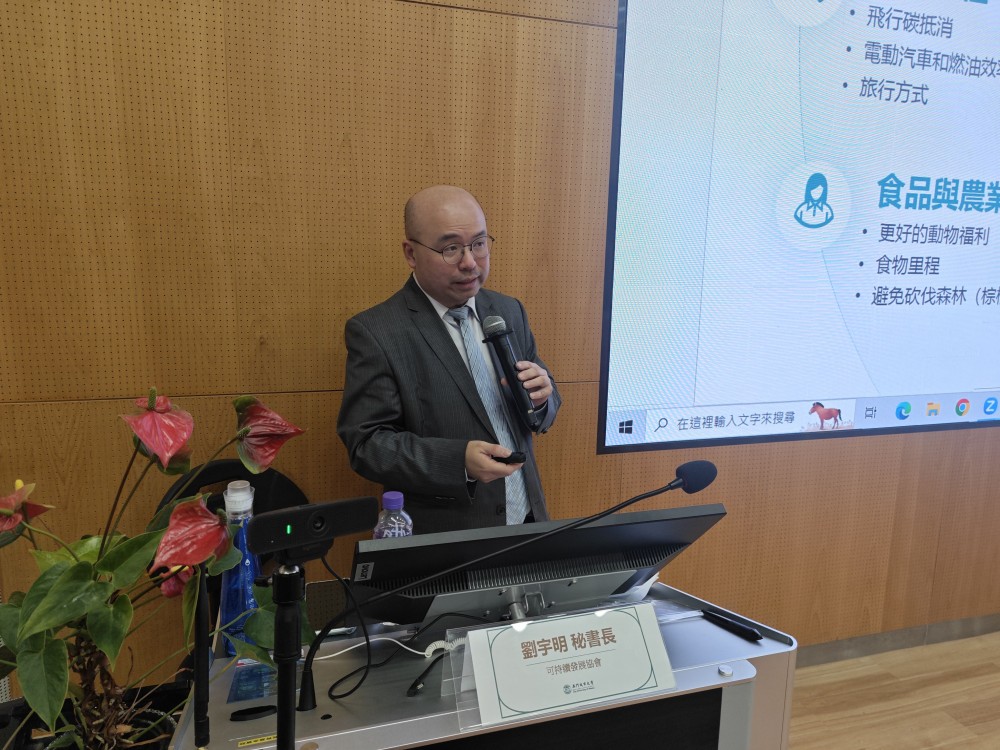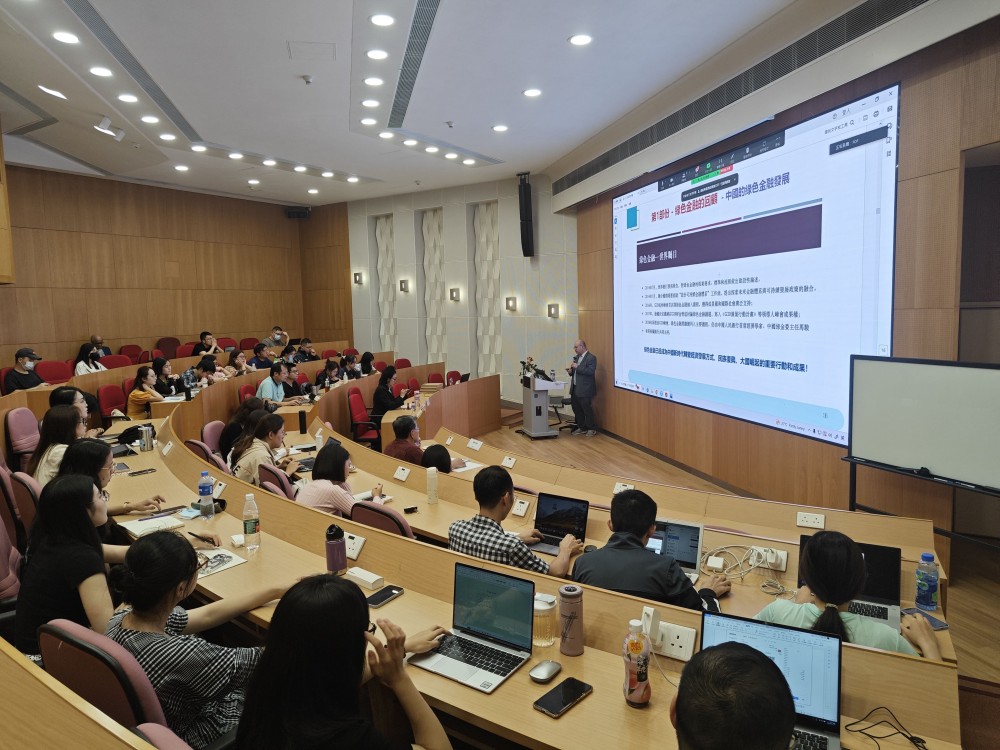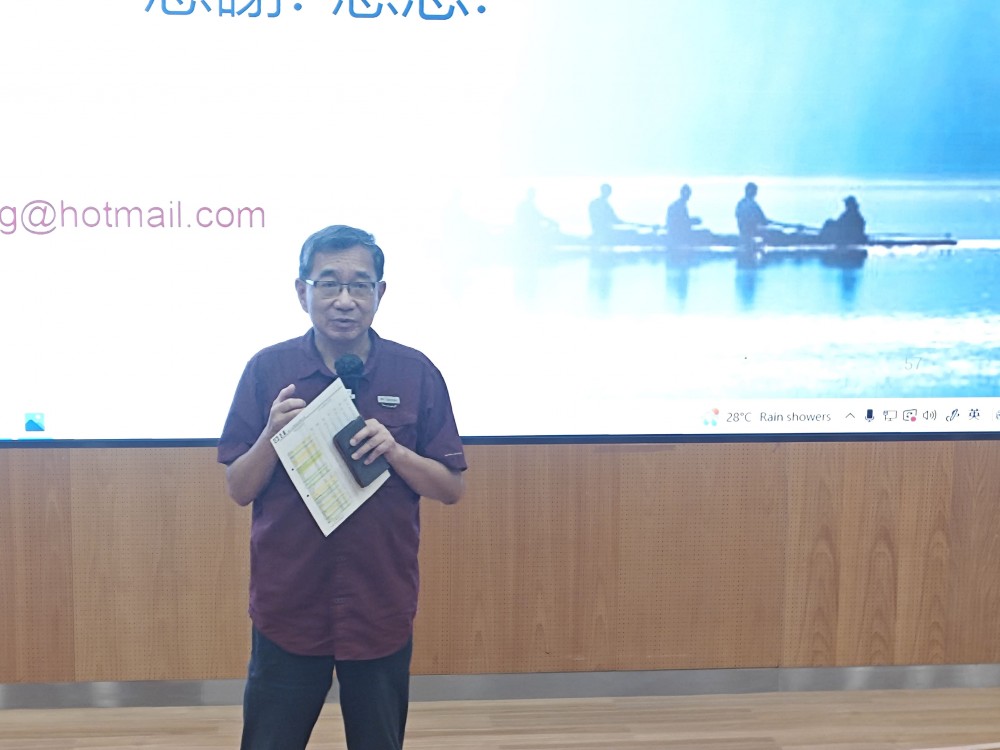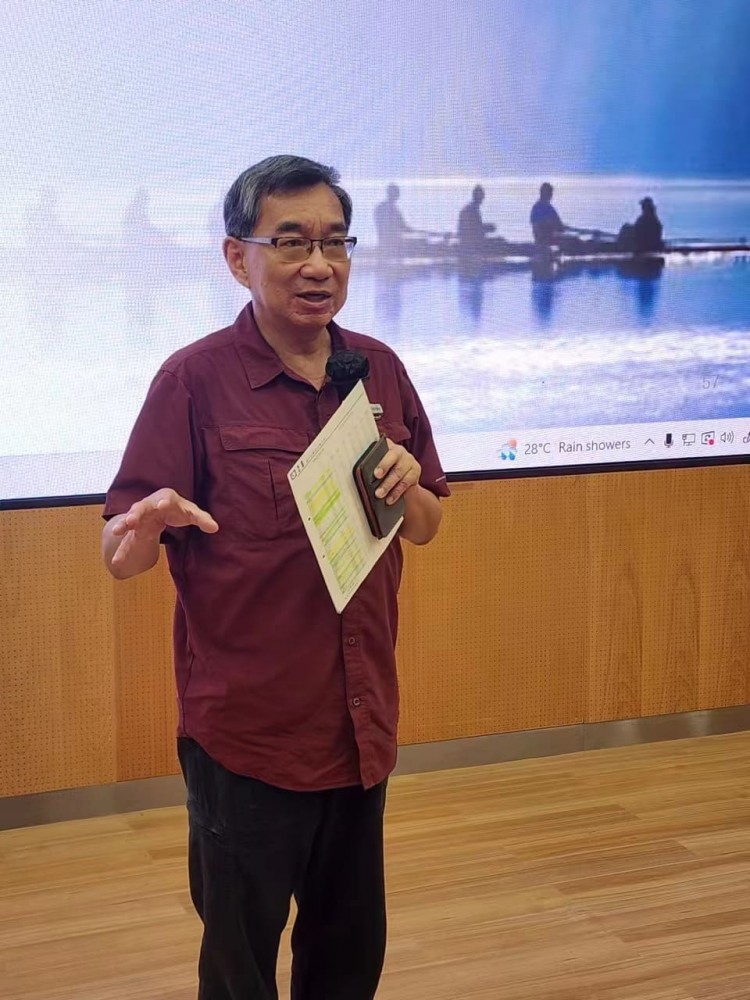On September 14, 2023, the Faculty of Finance at the City University of Macau held a series of financial lectures at the Ho Yin Conference Center [2]. The lecture invited Mr. Liu Yuming, Secretary-General of the Sustainable Development Association, Advisor to the Guangdong-Hong Kong-Macao Greater Bay Area Think Tank Association, Global Alumni Ambassador of the CUHK Business School, Vice Chairman of the CUHK Macau Alumni Association, Vice Chairman of the Macau Green Low Carbon Development Association, and Advisory Consultant of the Macau Scholars Association, as the guest speaker. The topic of the lecture was "ESG and Green Finance: A Review and Development in Macau". The guest list included Mr. Xie Hanguang, Vice President of the Macau Green Low Carbon Industry Association, Dean Adrian Cheung and Associate Dean Eva Khong of Faculty of Finance, City University of Macau.
Secretary-General Liu first briefly reviewed the issues surrounding green finance with the students. The world is facing numerous urgent challenges, including climate change and environmental pollution, and green finance is seen as an important direction to address these challenges. The United Nations' Sustainable Development Goals (SDGs) emphasize the importance of balancing current and future needs, including the more balanced utilization of natural resources, addressing climate change and environmental protection, building a fairer society, and promoting better corporate governance. ESG investments can help achieve these goals and address related factors.
In recent years, global governments and multinational organizations have increasingly recognized the importance of environmental issues. However, government funding is limited, and the investment costs for relevant infrastructure and projects are high. Therefore, private capital has become crucial to supplement government funding. According to the Asian Development Bank's projections, the Asia-Pacific region should invest approximately $40 billion annually by 2050 to adapt to climate change. As a result, multiple global financial centers have been actively promoting green finance in recent years, including raising funds and investing in sustainable, low-carbon, and climate-resilient projects, products, and companies.
China's development of green finance has a strategic layout at the national level, as reflected in President Xi Jinping's "19th National Congress Report." Green finance is also an important component and achievement of Xi Jinping Thought, embodying the concrete practice of the "Two Mountains Theory" and the concept of ecological civilization. Green finance has become a significant action and achievement for China's transition to a new era of economic development, the realization of national rejuvenation, and the rise of a great nation. It has attracted global attention and serves as a crucial pillar for China's rise.
Furthermore, China has put forward the "dual carbon" goals, aiming to peak carbon emissions by 2030 and achieve carbon neutrality by 2060. This strategic initiative promotes a green, environmentally friendly, and low-carbon lifestyle. China is actively promoting industrial and energy structure adjustments, vigorously developing renewable energy, and accelerating the planning and construction of large-scale wind and solar power bases in desert, Gobi, and barren areas to achieve simultaneous economic development and green transformation.
The environmental policies in Macau have made progress in recent years. According to the "Five-Year Development Plan of the Macau Special Administrative Region (2016-2020)" and the "Second Five-Year Development Plan for the Economic and Social Development of the Macau Special Administrative Region (2021-2025)," Macau is committed to enhancing environmental protection and promoting green living. Their goals include reducing emissions, promoting resource recycling, minimizing waste generation, and advancing clean energy substitution and the development of environmentally friendly industries. Additionally, Macau actively participates in the national environmental protection strategies, strengthening environmental pollution control and prevention, and striving to achieve a balance between urban development and environmental protection to build a green, low-carbon, and livable Macau.
Secretary-General Liu introduced the Sustainable Development Association. The Sustainable Development Association is an organization dedicated to promoting sustainable development through technology and social engagement in China, including the Guangdong-Hong Kong-Macao Greater Bay Area, countries and regions along the Belt and Road, Portuguese-speaking countries, Spanish-speaking countries, and African countries. As a society in Macau and Hengqin focused on ESG, green finance, dual carbon, new energy, and technology, the association maintains close communication and collaboration with organizations such as the Macau Trade and Investment Promotion Institute, Transport Bureau, Nam Kwong Group, Nam Yue Group, Macau Securities and Fund Industry Association, and Hengqin Financial Industry Association.
Next, Secretary-General Liu reviewed the topics of ESG with the students. ESG investing is an approach that incorporates environmental, social, and governance factors into the fundamental investment process. This means considering ESG certificates in core portfolio analysis and integrating ESG ratings into decision-making, with rating agencies playing an important role in this process. The ESG framework covers the origins and development of ESG, investment theory, value realization, ratings, regulatory policies, and related reporting systems. Additionally, corporate governance and applications within the ESG field are important topics, encompassing ESG corporate governance, management of listed companies, and high-tech applications. Secretary-General Liu provided detailed explanations of various ESG framework systems and applications in corporate governance, citing relevant cases from insurance companies, banks, and fund companies.
Regarding the path and recommendations for green finance and ESG development in Macau, Secretary-General Liu pointed out that global green and sustainable economic development is rapidly advancing, and the low-carbon era has become a blue ocean in the new industrial age. By the end of 2022, 136 countries had proposed carbon neutrality goals. As a developing region, Macau can establish itself as a platform for green finance in the Greater Bay Area, fully utilizing the opportunities brought by the national dual carbon strategy, promoting the application and innovation of green finance, emphasizing talent training, and strengthening exchanges and cooperation with the Greater Bay Area, both domestically and internationally. ESG issues will continue to develop globally, and Macau can raise awareness of ESG among businesses, communities, and the public, establish ESG information disclosure standards, indicators, and evaluation systems, as well as promote ESG talent training and enhance ESG exchanges and cooperation with the Greater Bay Area, both domestically and internationally.
Finally, Professor Xie Hangguang briefly introduced the Macau Green and Low-Carbon Industry Association, stating that the association actively engages in external exchanges and strives to promote the green and low-carbon development of Macau's four major industries. The lecture allowed the students to gain more knowledge about green finance in Macau, China, and internationally, and to deepen their understanding of the financial development of green finance and ESG in Macau. The students expressed great satisfaction with the fruitful experience of the lecture and look forward to more financial-themed lectures and sharing in the future.



